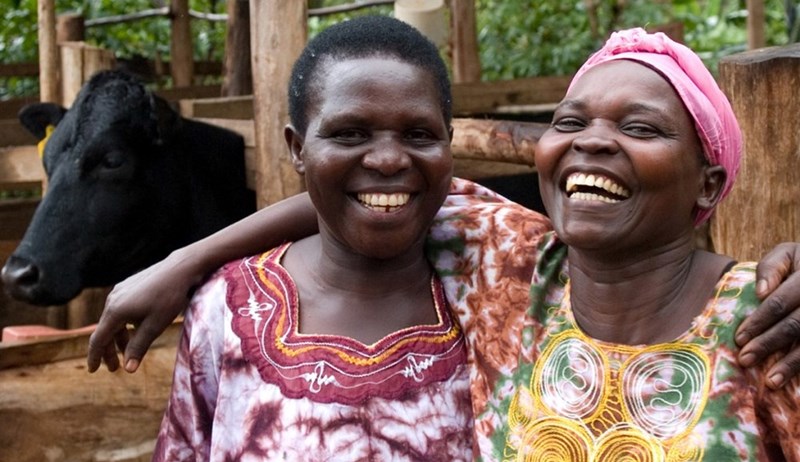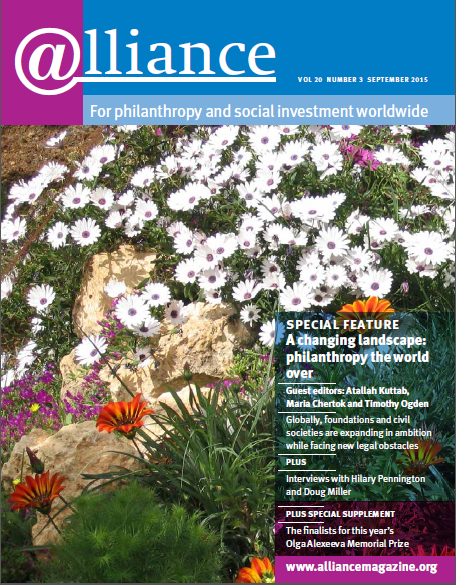The question of an enabling environment for informal philanthropy is an apparently simple, but actually complex, one. Simple because its informality seems to make it both unnecessary and next to impossible to regulate. Complex because the definition of ‘informality’ depends on who is defining it and why and because the practices of informal philanthropy depend very much on who is practising them. In other words, you can’t impose an enabling environment for this kind of philanthropy from a textbook. It has to be built from the ground up. In Africa, a good place to start is the energy of communities.
The issue looks simple because informal giving denotes a very basic set of practices; it also suggests something outside the mainstream and therefore inaccessible to regulation. So it’s easy to think that there’s no need for regulation of such simple practices; and in any case, it would be difficult to make such an unruly issue the subject of complex legal, policy, administrative and governance frameworks.
We would be very wrong to think so, however. An enabling environment for informal philanthropy is a very complex and politically charged matter largely because the definition of ‘informal’ depends on the views of the person defining it. What is deemed informal by outsiders might actually be the very essence of African humanity in the minds of Africans themselves. With this in mind, it becomes impossible to lay down a set of prescriptions as the ideal environment for informal philanthropy. It makes more sense to think of suiting the environment to the context.
‘An enabling environment for informal philanthropy is a very complex and politically charged matter largely because the definition of “informal” depends on the views of the person defining it.’
In African communities, first and foremost an enabling environment needs to be founded on the energy that exists between individuals. It is this currency that connects spirit and aspiration with the foundations of unity, reciprocity and mutuality. Without that energy, there is nothing. It is this energy that powers transformations. The second thing needed for an enabling environment is an ecosystem and its platforms. Energy flows are transmitted through this ecosystem; by connecting different currents it lays the foundations of a functioning philanthropy.
Only after what can be loosely called spiritual connections are made can administrative, legal and policy instruments be developed for philanthropy. Here again, context is important. These instruments need to be conceived within the particular cultural, political and economic climates of the societies they are meant to serve. Elsewhere fiscal prudence is at the heart of instruments designed to create an environment for philanthropy; but in most African communities, though money matters, an environment based on fiscal issues misses the bigger slice of what philanthropy is. A nuanced look at philanthropy in African communities would demand instruments that regulate or facilitate relationships, and the movement of social and other forms of capital, not just – or indeed always – financial capital.

An enabling environment for informal philanthropy promotes the flow of energy between people, and builds trust. Credit: Ben Langdon, Send a Cow, http://www.mile91.co.uk/contact-us
Trust, for instance, is one of the areas that an enabling environment would have to address. This is linked to values; and so in the African context, one of the key reference points would be the African Union Charter on values and public service. Another would be the Cultural Charter for Africa (1976); the African Charter on Human and People’s Rights (1981), and the Charter for African Cultural Renaissance (2006).
In short, an enabling environment for informal philanthropy would be one that creates, recreates, facilitates and promotes the flow of energy between people, and builds trust. This trust and those values lay the foundation for the construction of norms and legal standards; the development of governance, institutional and administrative; and the policy frameworks that guide and regulate the environment for philanthropy. Only then can instruments such as taxation laws, registration requirements and grantmaking instruments be developed and deployed in the service of philanthropy.
Bhekinkosi Moyo is the executive director of the Southern Africa Trust. Email bmoyo@southernafricatrust.org







Comments (0)